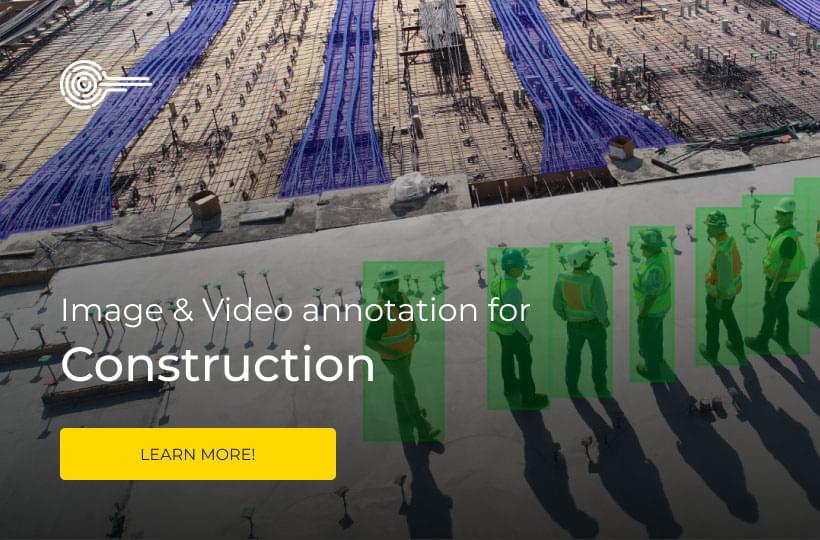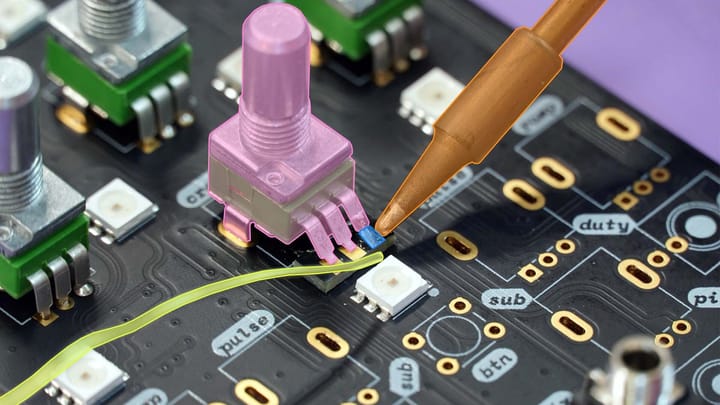Building a Data-Driven Construction Company: Skills and Resources for Success with AI

Did you know that global construction-related spending tops $10 trillion yearly? This figure highlights the vast potential for AI in construction to transform the industry. The sector faces challenges like safety issues, labor shortages, and cost overruns. Data science for construction is a pivotal solution.
Curious about how AI and machine learning can help your construction business? These technologies improve design, reduce risks, and enhance project planning. They increase productivity, safety, and help manage labor shortages. By using big data, you can make smarter decisions and keep up with market trends.
Key Takeaways
- Global construction spending exceeds $10 trillion annually
- AI and machine learning address key industry challenges
- Data-driven decision making improves project outcomes
- AI tools enhance design, safety, and productivity
- Proper implementation of AI is crucial for success
- Continuous updating of AI systems is necessary

The Rise of AI in Construction: An Overview
AI is transforming the construction industry. By 2024, AI technologies will become more advanced and widespread. This change is revolutionizing how construction projects are planned, executed, and managed.
Current AI Adoption Trends in the Construction Industry
Construction firms are embracing AI to enhance productivity and efficiency. For example, Buildots has created an AI system using 360-degree cameras and computer vision. This system tracks construction progress in real-time. AI algorithms analyze historical data for predictive analytics, optimizing scheduling and resource allocation.
Benefits of AI Implementation for Construction Companies
The advantages of AI in construction are numerous:
- Enhanced productivity and accuracy
- Cost savings through reduced material waste
- Improved safety precautions
- Optimized planning and project management
- Streamlined bidding and negotiation processes
Key Challenges in Integrating AI into Construction Processes
Despite the benefits, integrating AI in construction comes with challenges:
| Challenge | Description |
|---|---|
| Data Protection | Concerns about securing vast amounts of analyzed data |
| Insurance | Need for policies covering AI-related errors and liabilities |
| Ethical Standards | Addressing bias, transparency, and accountability issues |
| Legal Framework | Balancing innovation and risk mitigation in AI-generated data use |
As AI reshapes the construction landscape, addressing these challenges is vital for successful implementation and widespread adoption.
Essential Skills for Data-Driven Construction Professionals
In the evolving landscape of construction, data-driven construction skills have become crucial for success. As the industry embraces technology, AI skills for construction professionals are increasingly in demand. Let's explore the essential competencies needed to thrive in this data-centric environment.
Today's construction professionals must master data analysis, AI technologies, and data management. Understanding AI and machine learning fundamentals is key to leveraging these tools effectively in project management. The ability to interpret and act on data-derived insights is paramount.
Data visualization and predictive modeling skills are becoming indispensable. These abilities allow professionals to present complex information clearly and forecast project outcomes accurately. Knowledge of data privacy and security regulations is also essential when handling sensitive project information.
"Data engineers were identified as the fastest-growing position within the tech industry, with a 42.2% year-over-year growth rate in open positions."
Programming languages like Python and SQL are valuable assets for construction professionals looking to enhance their data-driven decision-making capabilities. Familiarity with cloud platforms such as AWS and Azure can also prove beneficial for managing large-scale data operations.
| Skill | Importance | Application in Construction |
|---|---|---|
| Data Analysis | High | Project performance evaluation |
| AI/ML Fundamentals | Medium | Predictive maintenance |
| Data Visualization | High | Progress reporting |
| Programming (Python/SQL) | Medium | Custom data analysis tools |
| Data Privacy Knowledge | High | Secure project data handling |
By developing these data-driven construction skills, professionals can position themselves at the forefront of industry innovation. Embracing AI skills for construction professionals will not only enhance individual career prospects but also drive the industry towards greater efficiency and success.
Understanding AI and Machine Learning in Construction
AI is revolutionizing the construction industry, valued at over $10 trillion annually. It has the potential to increase the market's value by $1.6 trillion each year. Machine learning brings transformative benefits, such as predicting risks and automating monitoring, to construction projects.
Fundamentals of AI and ML Technologies
AI and machine learning trace their origins back to the 1950s but have surged in relevance. These technologies process immense data, enabling decisions that surpass human capabilities. In construction, AI algorithms dissect various data dimensions to deliver actionable insights.
Applications of AI in Construction Project Management
AI is transforming construction management in several ways:
- Predictive maintenance reduces machine downtime by 30-50%
- It analyzes subcontractor performance to predict delays
- Automates site monitoring for hazard detection
- Identifies safety risks through historical data analysis
Predictive Analytics and Decision-Making in Construction
Predictive analytics allows construction firms to make decisions backed by data. Machine learning algorithms scrutinize past project data to forecast outcomes and pinpoint potential risks. This method improves project planning, enhances worker safety, and boosts efficiency.
| AI Impact | Benefit |
|---|---|
| Machine Downtime | 30-50% Reduction |
| Machine Lifespan | 20-40% Increase |
| Task Automation | Improved Productivity |
| Project Design | Enhanced Efficiency |
As AI and machine learning advance, construction firms that adopt these technologies will gain a substantial competitive advantage. This will drive innovation and efficiency across the industry.
Data Science for Construction: Transforming Raw Data into Insights
Data science is transforming the construction industry by converting raw data into actionable insights. Construction firms are leveraging big data to enhance project outcomes and reduce risks. Through analyzing project data, equipment performance, and market trends, construction data analytics offer vital information for decision-makers.
The integration of data science in construction results in more accurate cost estimates, better resource allocation, and enhanced project planning. For instance, сonstruction analytics can predict potential delays or cost overruns early, enabling project managers to act proactively.
Data scientists in construction employ various techniques to uncover meaningful patterns in large datasets:
- Data mining
- Statistical analysis
- Machine learning
These approaches enable construction professionals to make informed decisions, thereby improving project efficiency and success rates. Predictive analytics, for example, can forecast equipment maintenance needs, reducing unexpected downtime and related costs.
"Data science is the compass guiding construction projects through the complexities of modern building processes."
As the construction industry adopts data science, firms that invest in these technologies and skills will gain a substantial competitive advantage. The future of construction hinges on leveraging data to construct smarter, faster, and more economically.
Building a Data-Centric Culture in Your Construction Company
Creating a data-centric construction company is essential for success in today's tech-driven industry. By promoting data literacy in construction and using data-driven processes, you can change how your organization manages projects and makes decisions.
Promoting Data Literacy Across All Levels
To build a truly data-centric construction company, focus on enhancing data literacy at every level. This involves providing training and resources to help employees understand and use data effectively in their roles.
- Offer workshops on data analysis tools
- Create mentorship programs for data skills
- Encourage data-driven problem-solving
Implementing Data-Driven Decision-Making
Shift from gut feelings to fact-based choices by integrating data into your decision-making processes. This approach can lead to significant improvements in project outcomes and efficiency.
| Metric | Improvement |
|---|---|
| Equipment Fuel Efficiency | 25% increase |
| Worker Productivity | 15% increase |
| Plant and Machinery Utilization | 10% increase |
Overcoming Resistance and Fostering Innovation
Change can be challenging, but it's essential for growth. To overcome resistance to data-driven practices:
- Communicate the benefits clearly
- Showcase success stories within the company
- Involve employees in data analysis processes
By fostering a culture of innovation through data insights, your construction company can stay ahead of the curve and deliver superior project results.
"Data serves as the cornerstone for informed decision-making in construction, moving us away from guesswork towards fact-based choices that drive success."
AI-Powered Tools and Software for Construction Management
AI construction software is revolutionizing the industry. It enhances productivity, reduces costs, and simplifies processes. By 2030, the AI-powered construction solutions market is expected to hit $5 billion globally. This surge highlights the growing importance of AI in construction management.
AI tools for construction bring significant advantages. They forecast project delays, optimize resource use, and spot defects early. For example, Togal.AI accelerates estimating tasks by 80%, significantly reducing manual data entry time. This leads to quicker project starts and more efficient bidding processes.
Construction experts now see AI construction software as essential for better project outcomes. These tools offer deep insights and suggest design tweaks. Drawer AI, for instance, employs machine learning to make reviewing and approving PDF construction drawings easier.
- Nifty: A project management tool with a free plan and paid options starting at $5/month per user
- Autodesk Fusion 360: An integrated CAD, CAM, CAE, and PCB platform from $67/month
- ClickUp Brain: An AI-powered scheduling assistant considering task dependencies and team availability
AI in construction management goes beyond software. It encompasses robotics like 3D printers, painting robots, and self-driving heavy machinery. These technologies work alongside human workers, boosting efficiency and safety on construction sites.

Developing an AI Strategy for Your Construction Business
Creating an AI strategy for construction is essential in today's tech-driven world. Your company's readiness for AI is crucial for success in implementing AI in construction. Let's delve into the steps to lay a strong foundation for your AI journey.
Assessing Your Company's AI Readiness
Begin by evaluating your current capabilities and data infrastructure. Consider these factors:
- Existing technology systems
- Data quality and accessibility
- Staff skills and knowledge
- Budget for AI investments
Setting Realistic Goals and Expectations
Define clear objectives for your AI strategy in construction. Focus on specific challenges you aim to address:
- Improving project efficiency
- Enhancing safety measures
- Optimizing supply chain processes
- Streamlining communication
Creating a Roadmap for AI Implementation
Develop a step-by-step plan for integrating AI into your construction business:
- Identify high-impact AI use cases
- Prioritize projects based on potential ROI
- Invest in necessary infrastructure and tools
- Train staff on AI technologies
- Implement AI solutions gradually
- Monitor and measure outcomes
| AI Implementation Stage | Key Actions | Expected Outcomes |
|---|---|---|
| Planning | Assess readiness, set goals | Clear AI strategy |
| Preparation | Invest in infrastructure, train staff | Enhanced capabilities |
| Execution | Implement AI solutions | Improved efficiency |
| Evaluation | Monitor progress, measure results | Refined AI strategy |
Successful AI adoption is a gradual process. Start small, align with your company's vision, and focus on measurable improvements. With a well-planned strategy, you'll be on your way to fully leveraging AI's potential in your construction business.
Data Collection and Management in Construction Projects
Effective data collection and management are key to successful construction projects. By leveraging the right strategies, you can uncover valuable insights. These insights help improve efficiency and minimize risks. Let's delve into the best practices for gathering and managing construction data.
It's vital to set up strong systems for capturing and organizing diverse data. This encompasses project timelines, resource allocation, equipment performance, and safety records. Utilizing IoT devices, sensors, and mobile apps can significantly boost real-time data collection on construction sites.
Effective data management allows firms to leverage historical data for predictive analytics and ongoing improvement. To ensure data integrity and adhere to privacy laws, implementing data governance frameworks is essential.
Benefits of Effective Data Management
- Improved project management and workflows
- Enhanced predictability of risks and challenges
- Smart planning and budgeting
- Optimized logistics and storage control
- Real-time analysis for strategic decision-making
- Reduced waste and increased safety
By prioritizing quality data collection, you can address common hurdles like information disorganization, inadequate tools, and a lack of skilled professionals. This strategy aids in avoiding process failures, missed business opportunities, and project delays.
| Data Application | Source | Benefits |
|---|---|---|
| Workplace data | Wearables, mobile devices, equipment sensors | Improved safety, real-time monitoring |
| Office accounting | Financial systems, progress reports | Accurate budgeting, cost control |
| Project management | Scheduling tools, resource allocation systems | Efficient timelines, optimized resource use |
Leveraging AI for Enhanced Safety and Risk Management
AI is transforming construction safety by offering new ways to manage risks and protect workers. It uses data and advanced algorithms to create safer work environments. This approach minimizes potential hazards.
AI-driven Safety Monitoring and Predictive Analytics
Predictive analytics, powered by AI, can spot hazards before they happen. This allows for early action to prevent risks. These systems get better at identifying dangers as they learn from more data. This means safety measures keep up with the changing conditions on construction sites.
Automated Risk Assessment and Mitigation Strategies
AI in risk management looks at safety data from past accidents and near misses. This deep dive into data helps understand safety risks better. AI can quickly spot safety hazards on construction sites with image recognition technology. This leads to quick fixes.
Improving Site Safety Through Real-time Data Analysis
AI's real-time monitoring boosts safety on construction sites. Advanced cameras with AI check for unsafe practices and make sure safety rules are followed. This tech gives site supervisors real-time data to act fast, cutting down on accidents and keeping things safe.
Using AI in construction safety builds a strong safety culture. It makes projects run smoother and more efficiently. The end result is a safer workplace, lower costs, and better project returns.
Resources for Learning AI Skills in Construction
To stay ahead in the rapidly evolving construction industry, embracing AI training for construction is crucial. Numerous AI learning resources are now available to help you acquire essential skills. Platforms like Coursera, edX, and Udacity offer specialized programs in AI and machine learning for construction professionals.
Industry associations are vital for AI education. The Associated General Contractors of America (AGC) and the Construction Management Association of America (CMAA) provide valuable workshops and webinars on AI applications in construction. These resources help you grasp how AI technologies like machine learning algorithms, computer vision, and data analytics are reshaping the industry.
Universities are also stepping up, offering courses that combine construction management with data science and AI. These programs equip you with skills in data interpretation, operational optimization, and risk assessment using AI tools. Many construction companies now offer in-house training sessions to help employees gain AI skills pertinent to their roles.
By dedicating time to these AI learning resources, you'll be well-prepared to utilize AI for enhancing safety protocols, improving efficiency, and boosting productivity in construction projects. Remember, proficiency in AI applications can significantly enhance your career prospects in the evolving construction landscape.
FAQ
What are the current AI adoption trends in the construction industry?
AI references in construction have surged by over 77% since 2022, highlighting its growing significance. It's now integral to various aspects of construction, such as predictive maintenance and project planning. AI also aids in risk mitigation, improves productivity, and enhances job site safety. Furthermore, it helps address labor shortages with innovative solutions.
What are the benefits of AI implementation for construction companies?
AI enhances decision-making through analytics, predicting outcomes from past data. It's transforming construction from start to finish, from design to management. Since 2016, cloud computing has made big data accessible, accelerating AI adoption in the industry.
What are the key challenges in integrating AI into construction processes?
Challenges include data quality issues and the need for large datasets. Overcoming resistance to change is also a significant hurdle.
What essential skills do data-driven construction professionals need?
Construction professionals must master data analysis, AI, and machine learning technologies, as well as data management. Understanding AI and ML's applications in construction project management is vital. They should interpret and act on data analytics insights. Skills in data visualization, predictive modeling, and algorithm development are increasingly sought after.
How is data science transforming the construction industry?
Data science is crucial in turning construction data into actionable insights. Companies use big data analytics to enhance project outcomes, reduce risks, and boost efficiency. Data scientists analyze project data, equipment performance, and market trends to inform decision-makers.
How can construction companies build a data-centric culture?
To foster a data-centric culture, promote data literacy across all levels. Implement data-driven decision-making and address resistance to change. Investing in training programs to improve employees' data skills and AI knowledge is essential.
What AI-powered tools and software are available for construction management?
For construction management, AI tools include project management platforms with AI, predictive analytics for risk assessment, and AI-driven scheduling tools. BIM software integrated with AI, AI-powered drones for site inspections, AI-driven cost estimation tools, and resource allocation software are also available.
How can construction businesses develop an effective AI strategy?
An effective AI strategy requires assessing the company's capabilities, data infrastructure, and technological readiness. Set realistic goals and expectations. Create a roadmap for AI implementation that aligns with business objectives. Involve key stakeholders in the strategy development process.
Why is effective data collection and management crucial for AI implementation in construction projects?
Effective data collection and management are key to successful AI implementation. Establish robust systems for capturing, storing, and organizing construction data. Ensure data quality and consistency. Implement data governance frameworks and leverage IoT devices and sensors for real-time data collection.
How can AI enhance safety and risk management in construction projects?
AI is crucial in improving safety and risk management. AI-driven safety monitoring systems use computer vision and sensors to detect hazards in real-time. Predictive analytics identifies patterns that may lead to accidents. Automated risk assessment tools analyze data to suggest mitigation strategies. Real-time data analysis enables quick responses to safety concerns, making the work environment safer.
What resources are available for construction professionals to learn AI skills?
Construction professionals can learn AI skills through online courses and certifications on platforms like Coursera, edX, and Udacity. Workshops and webinars by industry associations like AGC and CMAA are also available. University courses and degree programs combine construction management with data science and AI. Professional development programs and in-house training sessions by construction companies are also options.




